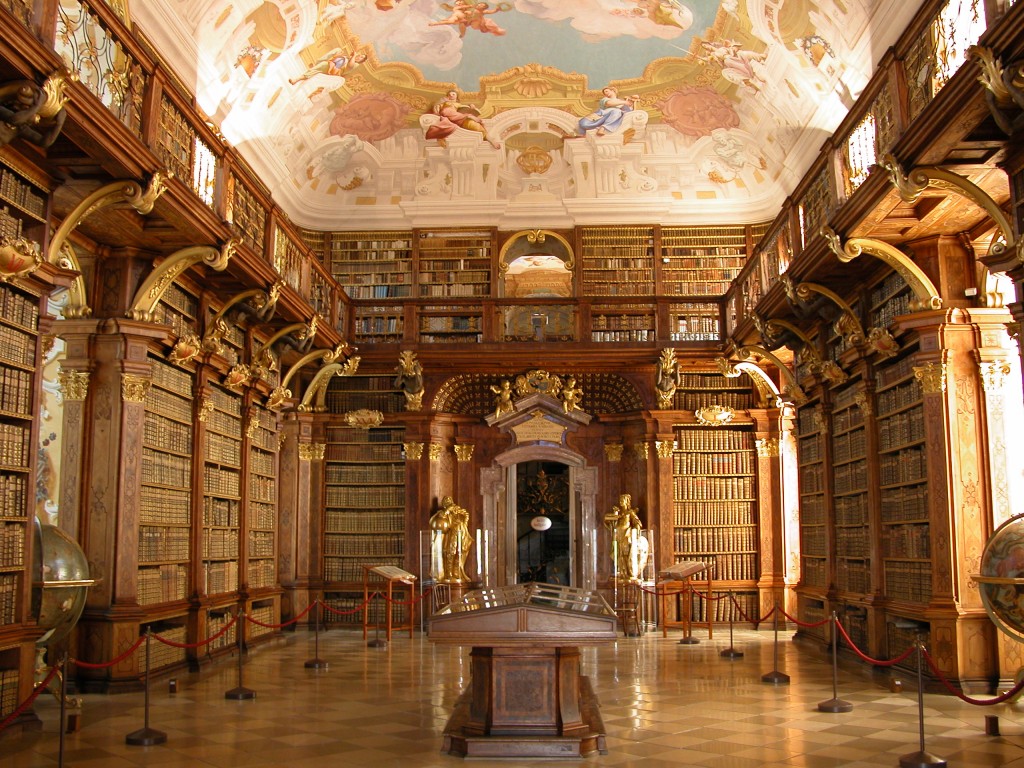[featured-image single_newwindow=”false”]
“[A]t the end of the [Second Vatican] Council the Fathers addressed a greeting and an appeal to artists: ‘This world—they said—in which we live needs beauty in order not to sink into despair. Beauty, like truth, brings joy to the human heart and is that precious fruit which resists the erosion of time, which unites generations and enables them to be one in admiration!'” (John Paul II, Letter to Artists, 11, emphasis added)
Everyday we are bombarded by various media. The internet has flooded us with access to millions of videos, news articles and Facebook comments–all available at the touch of a finger on our smart phone. Unfortunately while this technology has opened up doors and has connected people throughout the world, it has also allowed a wide variety of negative media to get the majority of our attention.
One check of our Facebook or Twitter news feeds will show less than inspiring posts by our friends and family. Even if we don’t click on a certain news story or watch a video, our mind registers what it sees and is affected by it either negatively or positively. Especially when we are in a time of vulnerability, surfing online most often will not lift our hearts to God. It is rare when we encounter something of great beauty; a quote or video that truly inspires.
This is why it is even more important that true, good and beautiful media be showcased and promoted. The internet is a great tool, and used correctly, we can be exposed to both written word and spoken word that bring us out of ourselves and into the infinite beauty of God.
Beauty of Art – A Pathway to God
“Beauty, whether that of the natural universe or that expressed in art, precisely because it opens up and broadens the horizons of human awareness, pointing us beyond ourselves, bringing us face to face with the abyss of Infinity, can become a path towards the transcendent, towards the ultimate Mystery, towards God. Art, in all its forms, at the point where it encounters the great questions of our existence, the fundamental themes that give life its meaning, can take on a religious quality, thereby turning into a path of profound inner reflection and spirituality.” (Benedict XVI, Letter to Artists, emphasis added)
Books and movies have a capacity to lead us beyond ourselves. Even literature and film that does not deal directly with the topic of God can be an opportunity of grace. If it “encounters the great questions of our existence, the fundamental themes that give life its meaning,” the piece of artwork that the writer or movie director has crafted is able to transport us from the everyday cares of life and can actually be a pathway to God. Truth, beauty and goodness are universal to man and so even those who do not live a virtuous life can be co-creators and work with what God has instilled in them to make masterpieces.
How does this change the world? Well, it only takes one person to change the entire course of history.
For example, Adolf Hitler was strongly influenced by the book The Passing of The Great Race by Madison Grant, which helped form his racist ideology. On the reverse side of things, Mahatma Gandhi was inspired by Leo Tolstoy’s The Kingdom of God Is Within You, Plato’s Apology, and the Gospels of Jesus Christ, to name a few.
Books (and movies, which often are adaptations of books) have great power to change the course of our lives. For good or for ill, we are inspired to bring change in our sphere of influence. That is why it is so very important to read books and watch movies that encounter the “great questions of our existence, the fundamental themes that give life its meaning.”
In the end, we don’t have to be influential politicians or revolutionary activists to change the world. In fact, “even the smallest person can change the course of the future.” (Galadriel to Frodo in the movie adaptation of The Lord of the Rings: The Fellowship of the Ring)

